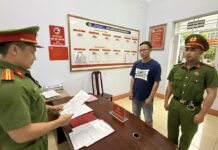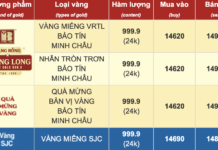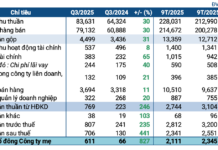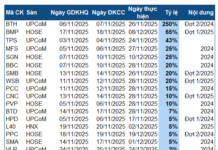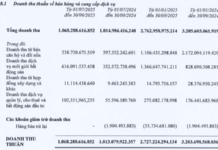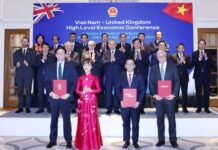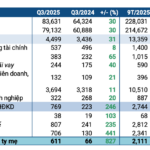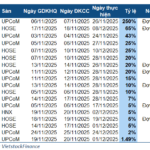In the afternoon of May 21st, the National Assembly, chaired by Mr. Tran Thanh Man – Chairman of the National Assembly, continued the program of the 7th session with a discussion on several contents of the draft Law amending and supplementing a number of articles of the Law on Auction of Assets.
 |
Mr. Vu Hong Thanh, Chairman of the National Economic Committee, presents the report on the explanation, reception, and editing of the draft Law amending and supplementing a number of articles of the Law on Auction of Assets.
|
According to Mr. Vu Hong Thanh, the Chairman of the Economic Committee, at the 6th session (October-November 2023), the National Assembly discussed and gave opinions on the draft Law amending and supplementing a number of articles of the Law on Auction of Assets. Based on the opinions of the National Assembly deputies, the agencies of the National Assembly and the Government, the Standing Committee of the National Assembly directed the Economic Committee (the main reviewing agency) to coordinate with the Ministry of Justice (the main drafting agency), the Committee for Legal Affairs, and relevant agencies to research and edit the draft Law.
After being edited, the draft Law has amended and supplemented 43 articles and repealed 03 articles of the current Law; added 03 new articles; and increased 18 clauses compared to the draft Law presented at the 6th session of the National Assembly, mainly making technical legislative changes without introducing many new policies.
Regarding the specific contents of the draft Law, in terms of auction assets, Mr. Vu Hong Thanh stated that the draft Law inherits the principle of building the Law on Auction of Assets as a formal law, uniformly regulating the order and procedures for auctioning assets that specialized laws require to be auctioned. To ensure clarity, practicality, and ease of application, the draft Law lists the types of assets that current specialized laws mandate for auction, based on a comprehensive review and in alignment with the provisions of specialized laws.
Concerning the determination of whether an asset meets the conditions for auction, which falls under the scope of specialized laws, the Chairman emphasized that the Law on Auction of Assets only prescribes the order and procedures for auctions. Specialized laws will stipulate which assets, values, or circumstances require auctions, and which do not. They will also specify whether an auction is for the right to lease or the right to own an asset. Additionally, the draft Law includes general provisions that are broadly applicable to other assets that specialized laws mandate for auction, ensuring comprehensiveness and anticipation of potential future assets.
To accommodate the National Assembly deputies’ opinions, the draft Law has been edited to replace the phrase “sold through auction” with “auctioned” to encompass all types of assets that current laws require to be auctioned, not only for the purpose of selling assets but also for granting, leasing, transferring, or licensing the right to exploit assets.
Regarding prohibited acts, the draft Law has removed the phrase “for the purpose of profiteering” from point d1, clause 1, and point d, clause 2, of Article 9, pertaining to “disclosing information about registered auction participants.” This change ensures practicality and compliance with the reality of this regulation. Simultaneously, to ensure objectivity, transparency, and prevent collusion in an asset auction, the draft Law has removed the phrase “to bid” from point d1, clause 5, of Article 9. This expansion of prohibited conduct does not consider the intention of individuals who receive authorization to participate in an auction on behalf of one or two other participants for the same asset, while also being a participant themselves, or if those individuals are participants in the auction of that asset.
Concerning the Auctioneer Practice Certificate, the draft Law has added violations of regulations on the sale of auctioned assets, as stipulated in clause 4, Article 15, and point b, clause 5, Article 17, as one of the cases where the certificate will not be granted or reissued. This ensures the strictness of auctioneer practice certificate issuance and aligns with the provisions of Article 218 of the Penal Code.
Regarding the rights and obligations of asset auction organizations, the draft Law has been edited to allow these organizations to provide auction services for assets without distinguishing between public and private assets. Additionally, the draft Law has added the right of asset auction organizations to collaborate with other asset auction organizations to conduct auctions, as stipulated in clause 2, Article 4.
On the topic of auction registration, Mr. Vu Hong Thanh shared that the draft Law has amended and supplemented clause 2, Article 38, to simplify the process for reviewing the qualifications of participants bidding on ordinary assets that do not require specialized technical conditions. In such cases, auction organizations only need to notify individuals who do not meet the qualifications one working day before the auction.
With regards to the deposit and its handling, the draft Law has been improved to provide clearer regulations on deposits for certain unique and typically high-value assets, such as minerals, land, and radio frequencies. The minimum deposit is set at 10%, and the maximum is 20% of the starting price, helping to reduce instances of winning bidders backing out and ensuring consistency with current legal regulations in related fields.
Concerning auctions by direct voting at the auction and by indirect voting, the draft Law has been edited to specify that the auctioneer only announces the price offered for each bid without disclosing all the information on the bid.
In the matter of online auctions, the draft Law has added Articles 43a and 43b, which provide a framework for online auctions. Article 43a outlines the basic contents of online auctions, stating that asset auction organizations, auction councils, and organizations wholly owned by the State and established by the State Bank of Vietnam to handle credit institutions’ bad debts may organize online auctions through the use of the National Asset Auction Portal or their own online auction pages or by hiring or using the online auction pages of other asset auction organizations. Article 43b sets out a framework for the procedure and process of online auctions, delegating the Government to provide detailed regulations to ensure the feasibility and effectiveness of these provisions.
On the topic of sanctions for violations by winning bidders who fail to pay, the draft Law has been improved by adding a case where the winning bidder of the right to use land for project implementation or mineral exploitation fails to make the winning bid payment, leading to the cancellation of the auction result. Depending on the nature and severity of the violation, they may be prohibited from participating in auctions for this type of asset for a period ranging from 6 months to 5 years. This addition is based on a review of Article 87 of the 2023 Law on Bidding, aiming to prevent negative acts, market disruptions, and instances of bidders backing out or inflating asset values for personal gain in asset auction activities.









